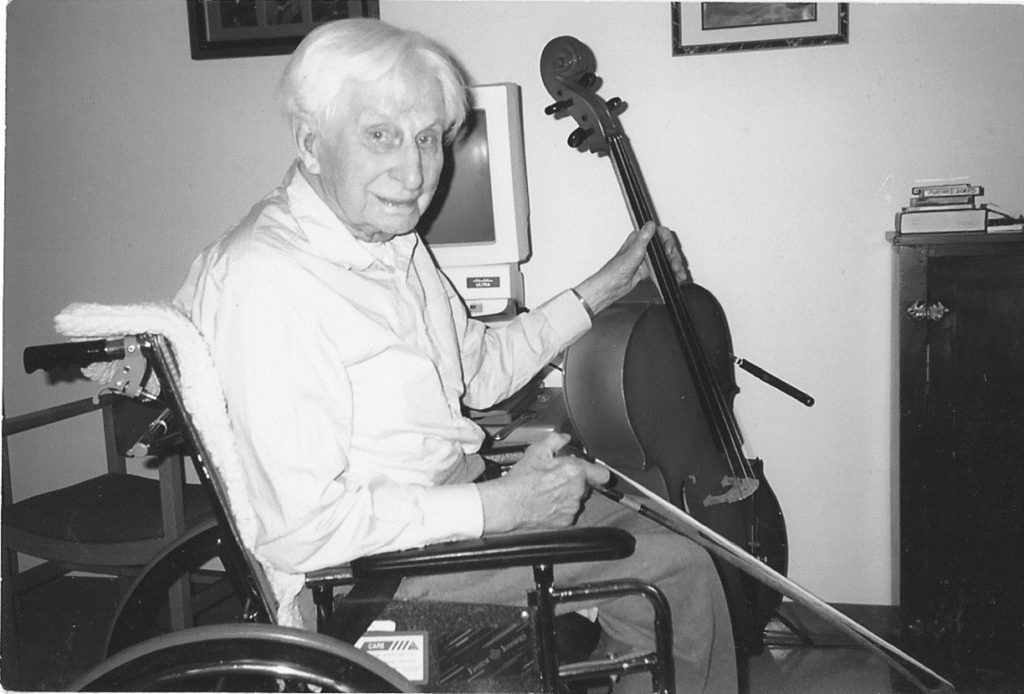
About 25 years ago a chiropractor performed an “old school” maneuver on me for which he should have done jail time. It severely disturbed my sciatic nerve and for 6 weeks the pain in my back was so intense I couldn’t walk except by using powerful, suicide inducing pain medications. My mind sometimes returns to those difficult days when I think of my friend Jim.
Until about 6 months ago, Jim worked in the woods. An elite faller with a muscular frame, he had the strength to handle a large chain saw in steep terrain. I always enjoyed the visits when he came into our community. With alert blue eyes, long blond hair and a quick optimistic smile, he attracted people wherever he showed up. He bought a new Ford pickup every two years and kept it in immaculate condition. I felt deeply disappointed when I learned he had begun associating with a group of young individuals who slept during the day and partied at night.
As I was walking along Daly Avenue in Hedley one day, Jim pulled over in a battered red Toyota pickup he must have rescued from an auto wrecker. His morose expression told me something had changed. “I was let go by my employer. The finance company repossessed my pickup,” he said, turning off the ignition. “My wife got fed up with me hanging around the house, then leaving her to put the boys to bed while I went and partied. She told me to move on and not bother coming back. I really miss my boys.” He paused for a moment, wiped a tear from his cheek, then said, “I need to change my life.”
In subsequent encounters the smile was gone, replaced by an expression of deep despair. Several times he again said, “I know I need to change my life.” Initially, I thought he would make the effort to turn his life in a better direction. The pain was searing his soul. I said more than once, “Jim, your friends are eroding your understanding of who you are. You need to break from your associations.” He agreed, but seemed unable to unfetter himself from the devious forces accelerating his slide into futility.
Reflecting back now on my own experience, I realize that like Jim, I had little hope my circumstances would change. I didn’t know how long I could live with the pain. I was eating mostly green grapes and flavoured yogurt and shedding weight, Linda feared my body was going into shock. Many nights, after she went to bed, I sat on the floor of our livingroom, seeking a way out of this frightening cauldron of physical, mental and emotional misery. The doctor who prescribed the pharmaceuticals had not troubled to warn me they might bring on thoughts of suicide. Although weak with pain, I considered dragging my body to Clearbrook Rd. and throwing myself in front of a big truck. The thought holding me back was that it would not be fair to Linda.
After about 6 weeks of crawling on the floor on hands and knees, I began getting help from a different chiropractor and a personal trainer. Now, to retain my ability to walk, I still do stretches and exercises to strengthen my body core. Since then, I’ve come to realize most of us will at some time need to grapple with a potentially life shattering circumstance. Several of my friends have lost their spouse, a few have been cut down in their prime by cancer or a debilitating illness. Others have been overtaken by financial loss. I’ve wondered what enables some to battle fiercely and again thrive, while others, like Jim, remain bogged down in mental and emotional quicksand, unable to extricate themselves.

I’ve concluded that one factor is the thoughts we have entertained over the years. My Dad was always generous with time and money. He sought to uplift people whenever possible. His thoughts made him optimistic, even in difficult times. At age 89 he fell and broke a hip. For the next five years he was in a long term care facility, unable to walk, get in or out of bed, or even turn over in bed. I asked him if he was hanging on to life for his family. I assured him if he wanted to let go, we’d miss him but we would be o.k. He replied, “No, I still like to live.”
